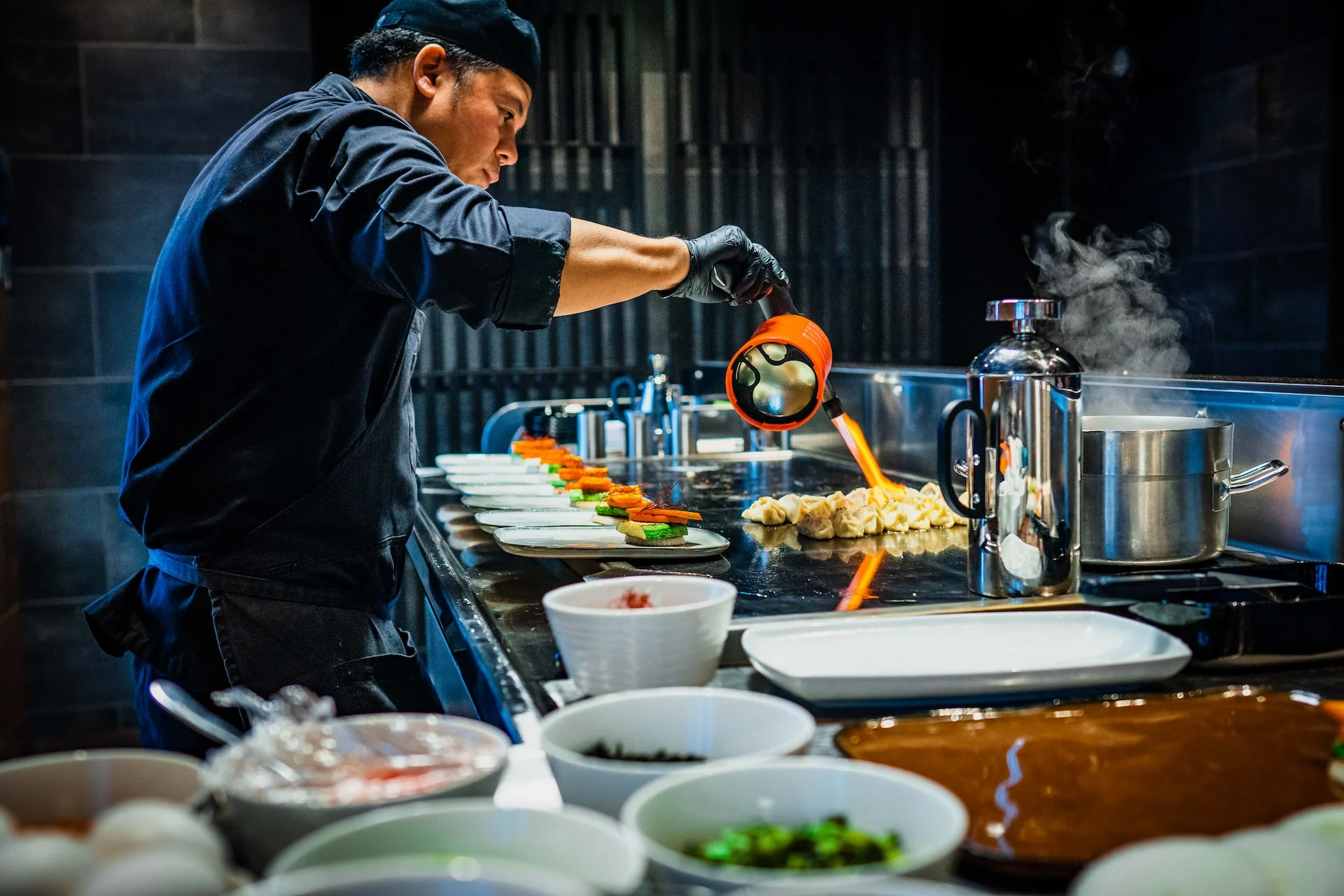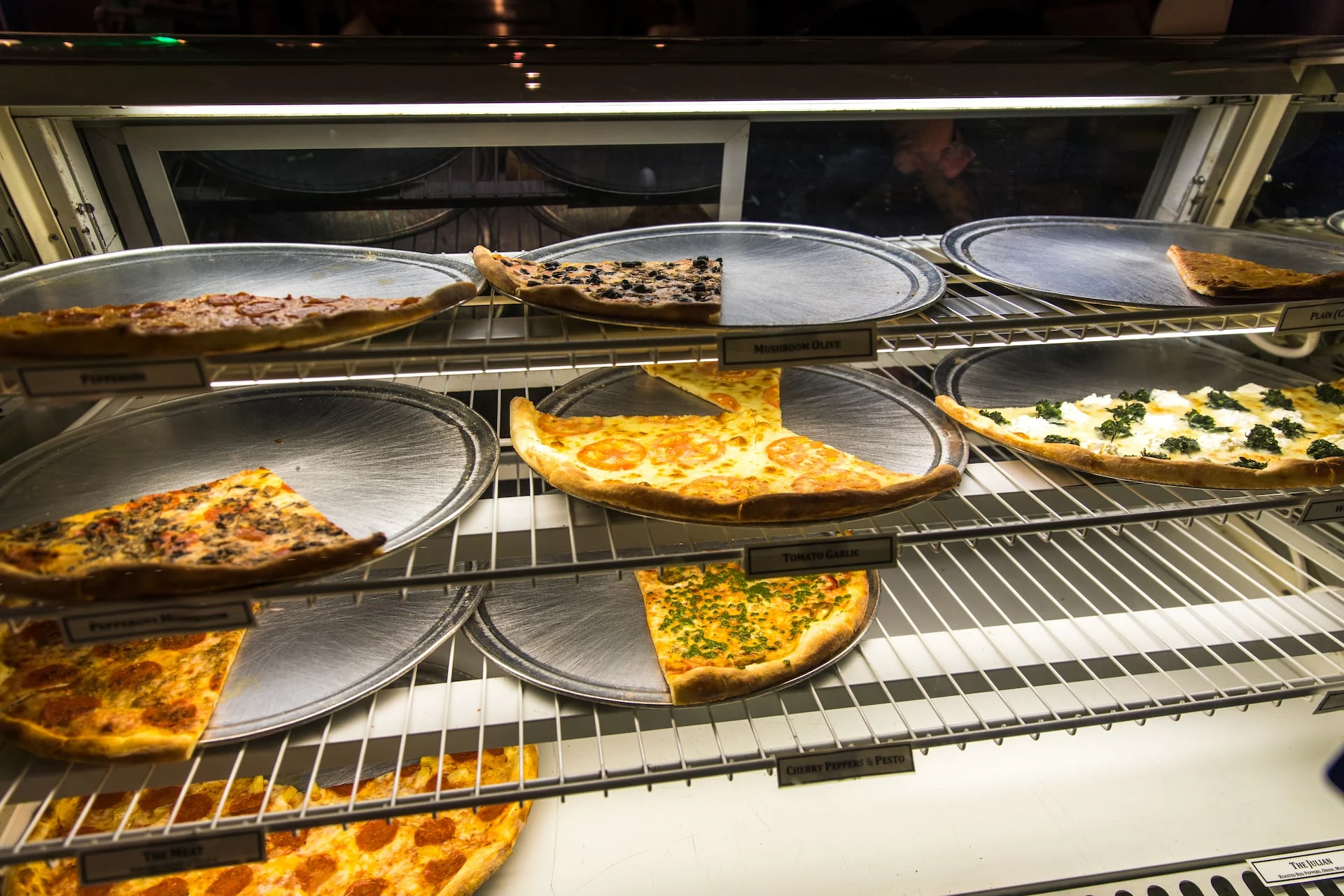Determining whether or not a catering business is suitable for you can seem like a daunting task. There are so many factors to consider and it’s difficult to know how much time and resources will be required in order to make the venture successful. With that being said, there are some clear benefits of launching your own catering business; this includes potential profits, networking opportunities, flexibility in pricing structure and more. In this blog post we’re going to explore what it takes to launch a successful catering business from figuring out your target clientele to putting together an amazing menu – all with the purpose of helping you decide if starting a catering service is right for you!
Catering is a great business for those who love to cook and entertain
Catering is a wonderful business for anyone who loves to cook and entertain. It’s an ideal way to share the joy of cooking with others, while also creating a profitable business venture. Catering businesses offer many benefits and opportunities, both financially and creatively.

One of the first steps in starting a successful catering business is to develop a plan. This includes deciding on the size of the operation, what types of services you will offer, where you will market your services, and how much you will charge for them. You should also have a budget in place that takes into account all expenses associated with running the business, such as supplies, staffing costs and overhead. Additionally, it’s essential that you research local regulations governing food safety and licensing requirements for catering businesses.
Once your business plan is in place, you’ll need to think about marketing your services. Creating an advertisement or website can help attract potential customers by showcasing your menus and specialties. Word of mouth referrals are another great source of new customers; ask friends and family to spread the word about your catering business! You might even consider participating in local events or joining networking groups to get more exposure for your company.
Providing excellent customer service is paramount if you want to succeed in catering; remember that every guest matters when it comes to impressing them with delicious meals or treats. Make sure that each dish or menu item maintains its freshness throughout service; this means careful planning ahead so there’s minimal waste during preparation processes. Furthermore, strive for consistency in flavor profiles across all dishes served; don’t forget presentation matters too! Quality ingredients are absolutely essential for creating tasty dishes everyone can enjoy.
When catering multiple events at once, time management skills become critical for success. Keep timelines organized by staying ahead of deadlines through advance preparation whenever possible; give yourself enough lead time when shopping for ingredients too as last minute shopping trips can quickly derail plans! Consider keeping digital records so important information isn’t lost along the way either; a detailed spreadsheet could be especially helpful here! Being able to delegate tasks efficiently among team members is key when juggling multiple events simultaneously as well.
Overall, catering can be an incredibly rewarding venture for those passionate about cooking and entertaining! With proper planning and implementation of organization methods like digital tracking systems or checklists, visualizing success becomes much easier.. Taking advantage of small marketing tactics such as social media campaigns can also help create excitement around new menus or products which leads to increased sales or bookings over time too! With dedication and attention-to-detail, experts believe any aspiring entrepreneur has unlimited potential when venturing into this industry!
There are many different catering businesses, so you can find one that fits your skills and interests
Starting a catering business can be an exciting prospect for any aspiring entrepreneur who loves cooking and entertaining. There’s no limit to the kinds of services these businesses can offer, from low-cost box lunches to elaborate five-course dinners, making it one of the most flexible and dynamic industries out there.
Before launching your venture, it’s important to consider what type of catering business you want to create. You may want to focus on private social events like weddings or special celebrations, or perhaps corporate events like conferences or large scale banquets. You may even choose to specialize in a certain cuisine like Italian, Mexican, or Asian food. Consider what skills you have that could give your business an edge too; are you particularly talented at baking desserts? Do you have experience in event planning? Are you certified in food safety practices? Utilizing your unique expertise is critical for separating yourself from the competition!
Next comes creating a plan that takes into account all costs associated with running a successful catering business. This includes acquiring supplies, staffing needs and predicting overhead expenses such as rent or utilities. Additionally, don’t forget about legal requirements based on the area where you will be operating; some cities require additional licensing or permits beyond food safety certifications which need sufficient lead time for processing applications before officially opening shop.
Once the groundwork is laid, building relationships with potential customers should become your major focus moving forward. Consider joining local networking groups or participating in trade shows as great ways to get your brand name out there among decision makers – many of whom may not necessarily be aware they need catering services! Additionally, having an advertisement or website allows interested parties to quickly get information about menus and pricing right away. Social media campaigns can also help draw attention to new dishes or holiday specials while word-of-mouth referrals are also incredibly valuable assets when trying to gain exposure too!
Last but not least, delivering quality customer service is essential for continued success in this industry; it’s important that all guests feel their dining experience was memorable and enjoyable if you hope for those same customers returning next time around! Plus, consistent deliveries using fresh ingredients make all the difference when creating meals people will love – paying attention to little details such as presentation really helps complete any dish so don’t overlook those opportunities either!
Overall, there are many different types of catering businesses available so finding one that best fits your skills and interests shouldn’t be difficult at all! With well-planned strategies backed by strong customer relations tactics can help ensure that your business succeeds once launched too!
Catering is a great way to make money while working from home
Catering is a great way to make money from the comfort of your home. Many people enjoy catering as they can create delicious meals or treats while also having the flexibility to work on their own schedule. Starting a successful catering business requires careful planning and execution, however, so it’s important to be aware of all the steps involved before diving into this industry.
First, you’ll need to decide how large you want your venture to be; do you plan on being a sole proprietor renting out kitchen space when needed or will you hire a staff and rent an entire commercial kitchen? You should also consider what type of cuisine or services you’d like to specialize in; Mexican dishes may require extra preparation for instance whereas Italian recipes could be relatively quick but with lots more ingredients. Additionally, setting a pricing structure beforehand can help make sure that you are fairly compensated based on the time and effort put into each dish.
Once those decisions have been made, getting organized is paramount for success in catering. Keeping digital records such as spreadsheet tracking systems of events helps ensure timelines stay on track and critical tasks aren’t forgotten either. Additionally, creating checklists can greatly assist in preparing for upcoming orders as it allows for efficient management of resources when cooking multiple items simultaneously as well.
When marketing your services is comes down to making connections with potential customers; having an advertisement or website showcasing menus and pricing can give interested parties all the information they need right away – plus social media campaigns can be incredibly helpful with generating attention around new dishes or specials too! Asking friends and family members to refer others is another great strategy while attending local events or joining networking groups like chamber of commerces could open up even more possibilities as well!
Delivering exemplary customer service is absolutely essential in this industry; taking pride in food presentation shows each guest that care was given when creating their meals which helps encourage future bookings! Plus using quality ingredients with minimal waste helps maintain profitability over time too! Lastly, thorough plans of action save plenty of headaches by organizing all tasks ahead of time so nothing falls through the cracks.
There are many things to consider before starting a catering business
Starting a catering business is an exciting venture and can be incredibly rewarding. However, in order to ensure that your business runs smoothly, there are several things to consider before beginning the process.
To begin with, understand that operating a catering business requires you to carry liability insurance. This type of insurance will provide protection for any damage or injury caused by your services or products. Insurance should be one of the first items in your budget when planning for your catering business; without it, you risk being financially liable for any damage incurred during a job.
Additionally, you must check local regulations to find out what permits and licenses are required in order to operate a legitimate catering business. Depending on where you live and the types of events you’ll be handling, certain permits may be necessary in order to lawfully conduct your operations. Before getting started, make sure you research all relevant laws and regulations in your region and apply for the necessary paperwork.
Good time management is also essential if you want to succeed as a caterer—it’s important to plan ahead so as not to get overwhelmed when juggling multiple projects at once. One way of doing this is by creating separate documents outlining timelines (including tasks such as ordering supplies or attending tastings) broken down into sections such as ‘menu ideas’, ‘client contact information’ and ‘event details’. Doing so will help keep track of all facets related to each project and limit potential inaccuracies when communicating with clients or vendors.
Furthermore, having a website with examples of previous client events is also recommended since it allows potential customers to see the quality of work that is conducted by your business—hopefully inspiring them enough to book an event with you! Having an online presence also makes it easier for customers to connect with you, which can result in many more referrals over time.
Finally, joining professional organizations like the National Association for Catering and Events (NACE) may seem optional but it has its advantages: Not only does NACE offer access members-only events but they also have vast resources outlining best practices within the industry and offer certifications that will give legitimacy to your brand identity.
Catering can be a very successful business if done correctly
Catering can be a very successful business if done with the right approach. You need to have an understanding of the catering industry and how it operates, so you can plan out your services accordingly. To begin, you must research different types of catering to see what type would fit best for your target market; this could include corporate events, weddings, birthdays or anniversaries. Once you know what type of services you want to offer, you can move forward with creating a business plan.
Your business plan should highlight all aspects of your catering business including budgeting, marketing strategies and customer service specifications. Breakdowns such as costs of food supplies and staff wages as well as allocation for marketing campaigns will help with understanding where every penny is going and gauging potential profits down the line.
When creating menus for customers be sure to keep a variety of dietary requirements in mind such as vegan or gluten-free options which will distinguish your services from competitors; making it easier to target certain markets that are looking for specific meals.
Customer service is also key when running any type of business: make sure that all employees understand their roles in order to provide clients with a pleasant experience—making them more likely to return once they’ve experienced a smooth and organized event setup!
In addition, staying connected with clients through post-event follow up emails or surveys may seem optional but provides invaluable feedback that can be used to improve future events; thus engaging more people in the long run!
Lastly, ensuring that proper safety protocols are enforced since everyone’s health should always take top priority. Partnering up with local health organizations such as hospitals or clinics may offer temporary contracts in which they conduct food safety inspections periodically before each event begins. This will give peace of mind both to yourself and your clients knowing that everything has been properly checked for accuracy!
A catering business can be an excellent source of income and a great way to become your own boss. With the right approach and dedication, this type of business can provide a steady stream of customers that will make you successful. However, there is still some risk involved and you should do plenty of research before taking the plunge. Ultimately, if you are passionate about food and hospitality, starting your own catering business may be the perfect opportunity for you.
Related Catering Articles
Who are the main customers for a Catering Business?
Starting a catering business can be both exciting and daunting. One key factor in its success is understanding who the main customer groups are and how to meet their needs.
How do I name my Catering Business?
Naming your catering business is an important first step in starting your business. It can lay the foundation for how your customers view, remember and engage with your business. Finding the perfect name to fit all those criteria, however, can be a challenge.
7 Things About Opening a Catering Business I Wish I Knew Before Starting
Starting a catering business can be daunting, but it doesn’t have to be! Looking back on my own journey, I’ve compiled seven things I wish I had known before starting out in the world of catering.
Do you need qualifications to start a Catering Business?
Starting your own catering business can be a very rewarding experience. However, there are some things you need to know before you get started. In this article, we will discuss the qualifications you need to start a catering business and provide some tips for success.
8 Step Plan to Quickly Open a Catering Business
Catering is a great way to feed your friends, family, and even strangers! If you’re thinking about starting a catering business, here’s an 8 step plan to help you get started quickly.
Start a Romantic Catering Business: Your Complete Guide
Love is in the air—and so is delicious food. If you’re looking to start a romantic catering business, you’re in luck. This guide will show you everything you need to know to get started.
Start a Deli: Your Ultimate Guide
Ready to take the plunge and start your own deli? It’s a big undertaking, but with careful planning and execution, it can be a hugely rewarding experience. Here’s your ultimate guide to getting started.
Start a Pizza Shop: Your Ultimate Guide
Starting your own pizza shop is a dream for many people. It’s definitely not an easy path to take, but it can be very rewarding. This guide will walk you through everything you need to know to make your dream a reality.
7 Mistakes Catering Business Entrepreneurs Make
Catering business entrepreneurs are passionate about food and service, but they may not have the experience or knowledge to run a successful catering business. However, with hard work and dedication, it is possible to build a thriving catering business. Here are seven mistakes that many beginning catering entrepreneurs make.










